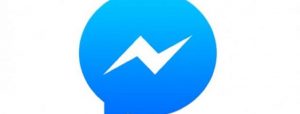Rocket Internet, the Berlin-based startup incubator that has launched startups from Brazil to India, set the price range for its initial public offering on Tuesday, which could value the company as high as $8.4 billion (6.5 billion Euros.)
Rocket could sell as many as 37.9 million shares, or 24% of the company, between the range of $46.50 (35.50 Euros) to $56.40 (42.50 euros) per share. Assuming that Rocket offloads all of those shares, which includes an over-allotment or “greenshoe” option, the company and selling shareholders could raise up to $2.1 billion (1.6 billion euros) if they sell at the high point of the predicted range.
That amount is far more than the $970 million (750 million euros) the company initially said it would raise when it announced its offering earlier this month. Rocket’s pricing comes in lockstep with German fashion retailer Zalando, which set its own IPO price range last week and plans to raise as much as $818 million (633 million Euros) in its Oct. 1 offering.
“We have built a unique platform that has allowed us to take internet business models to over 100 countries today, bringing basic goods and services to our diverse customer base,” said 41-year-old Rocket CEO Oliver Samwer in a statement earlier this month. “Taking our company public is the next step in our journey to build the world’s leading internet platform outside of the United States and China.”
Rocket Internet and Zalando’s public offerings mark a watershed moment for the German–and specifically Berlin–tech scene. The IPOs will be the two largest for the country’s technology sector since the 2000 listing of Deutsche Telekom .
Founded in 2007 by Marc, Oliver and Alexander Samwer, Rocket Internet was created to establish e-commerce and online retailing companies in places that the three brothers saw as underserved markets. Often mimicking the business models and designs of American companies, Rocket has established more than 75 firms around the globe including Zalando, which was built initially as a European model of American online shoe retailer, Zappos.
Investors will value Rocket based on its stakes in the companies that it has launched as well as its potential to keep developing new e-commerce focused startups. In its IPO documents, the company described that it started several proven winners, though those that disclosed financial data did not show profits in 2013. Rocket-backed companies that recorded losses last year included Russian fashion online retailer Lamoda, which lost $51.5 million (40.1 million Euros); German online home furnishings site Westwing, which lost $82.2 million (64 million Euros); and Latin American e-commerce portal Linio, which lost $18.6 million (14.5 million Euros)
Prior to its IPO announcement, Rocket had been on a fundraising tear. Last month, the company raised nearly $900 million in private capital from two investments made by the Philippines Long Distance Telephone company and Germany’s United Internet. The company also took the steps to restructure ownership stakes in some of their startups prior to their IPO.
The build up to Rocket’s IPO has made its founders, the Samwer brothers, into billionaires. Through their holding company, Global Founders, they brothers control 52.3% of the startup incubator, splitting that stake evenly. While the offering will initially consist of all new equity from the company, the brothers can sell up to 4.9 million shares if underwriters exercise their over-allotment option to fulfill IPO share orders.
The Samwers also collectively own about 17% of Zalando. If Zalando and Rocket price their shares at the top of their respective ranges, FORBES estimates that each Samwer brother would be worth at least $1.8 billion.
Rocket Internet noted that it already had commitments from investors to buy up to $749 million-worth (583 million Euros) of shares in its IPO from a group that included Baillie Gifford & Co. and J.P. Morgan. Existing investors have agreed not to sell their shares for at least a year following the offering, with the only exception being Global Founders’ potential sale to satisfy the greenshoe option.
Rocket Internet will be listed on the Frankfurt Stock Exchange’s entry standard under the ticket “RKET” and said it could start trading as early as Oct. 9. The entry standard is know for being more lax than the exchange’s prime standard and isn’t subject to the European Union’s regulations on reporting finances. Rocket said in a previous statement that it plans to make the move to the prime or general standard of the Frankfurt Stock Exchange in as early as 18 months.
Read more: Rocket Internet Valued At More Than $8 Billion After Incubator Prices Shares







